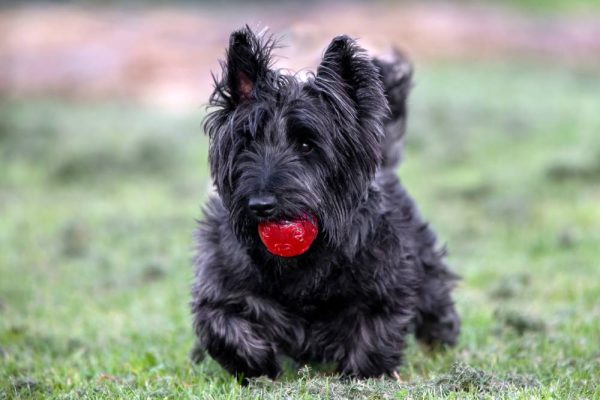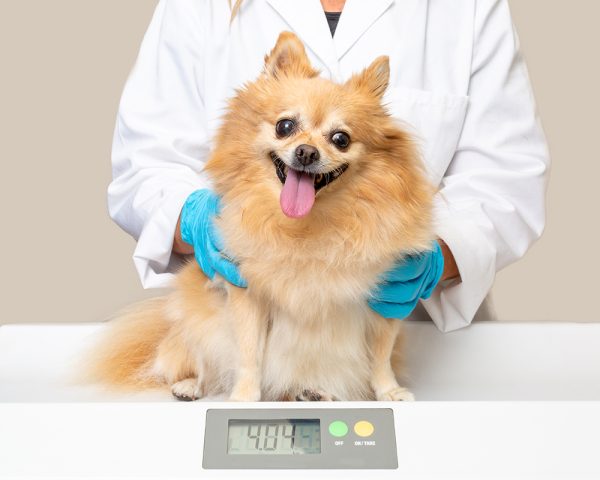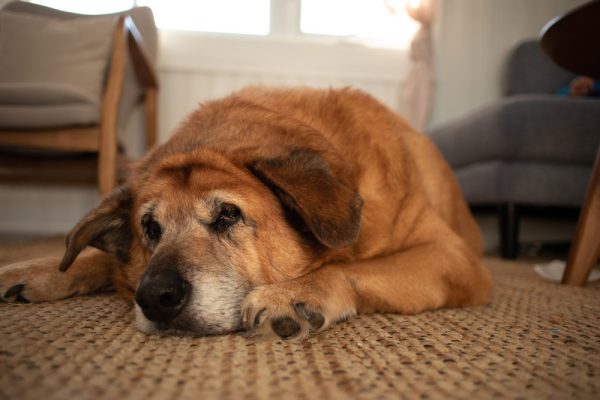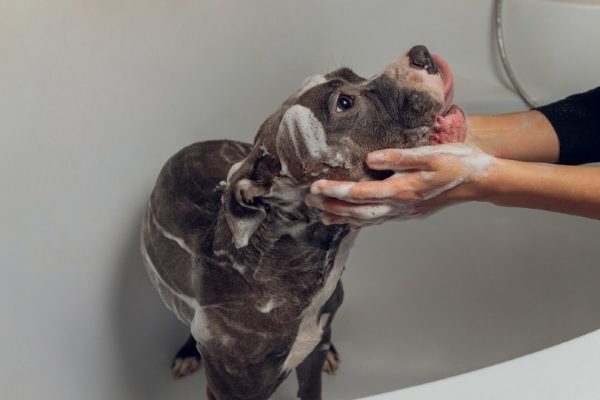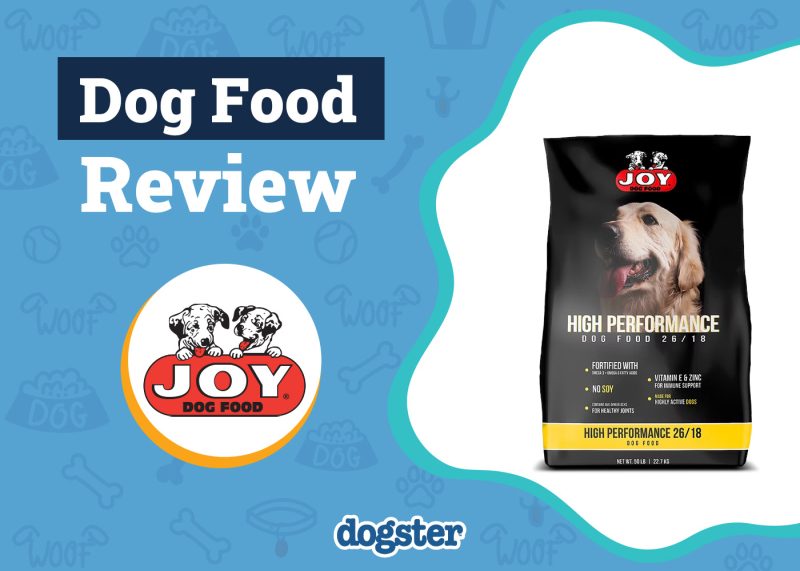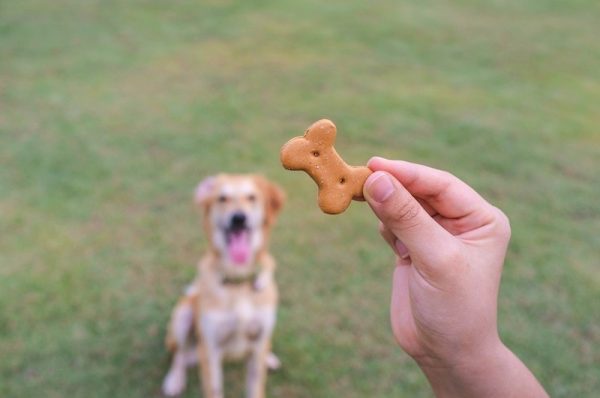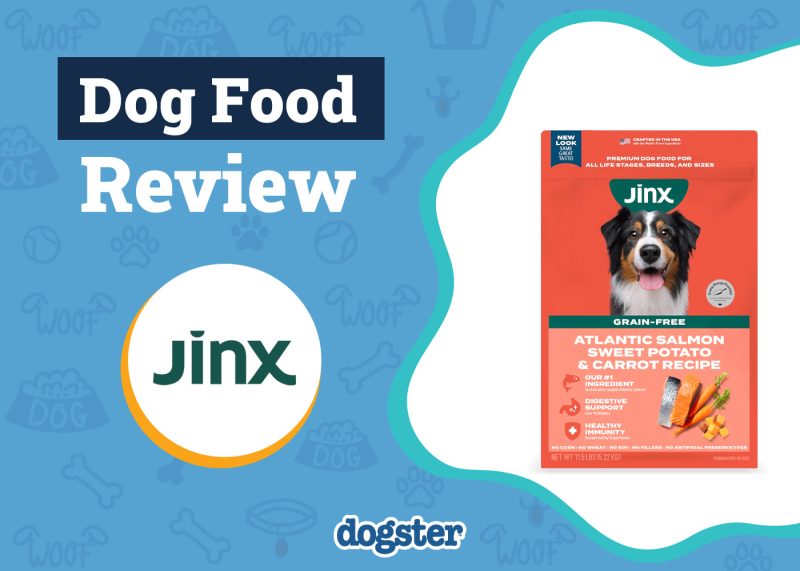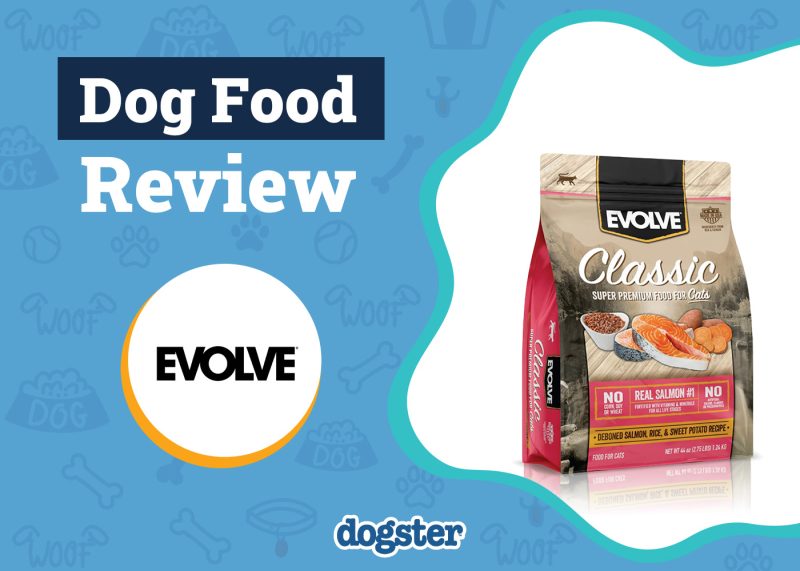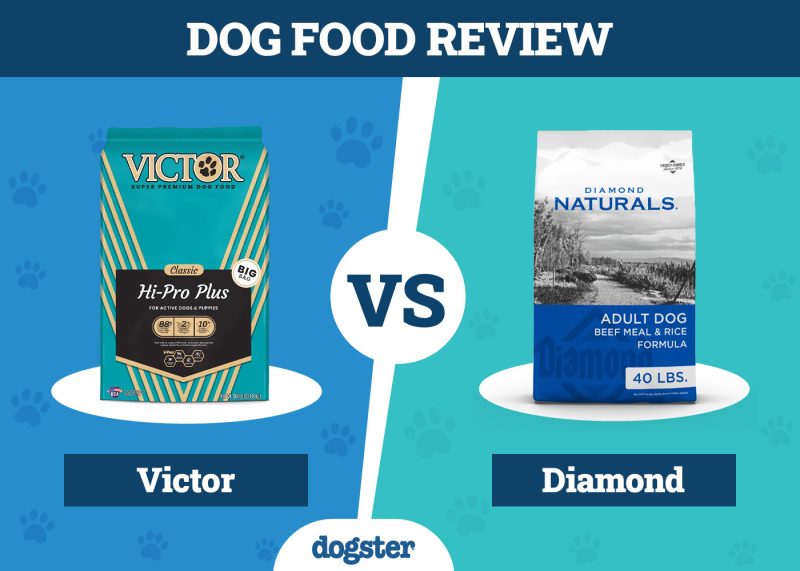In this article
View 4 More +Most dog owners have had a moment when their dog was innocently exploring the yard nose first, no problem, when suddenly they realized their dog started eating something they couldn’t see. You rush over. At first, you can’t tell what they’re eating, and then you see it. Nestled in the grass is a collection of small, chocolate-drop-looking fecal pellets that your dog is trying to finish off like it’s a bowl of Dippin’ Dots. The good news is it’s not bones, a toxin, a foreign object, all the normal things to worry about.
But the next question is, other than grounding your dog from licking you anytime soon, do you need to worry any further about this unhappy event? Will this keep happening? The good news is a dog eating rabbit poop is almost never an issue, but there are some things it’s best to know about the situation.

Types of Rabbit Poop
First things first: are you sure your dog ate rabbit poop and not the poop of another animal?
There are two types of rabbit poop you might see in the yard. The first and most common is a normal fecal pellet. They’re small and round, about the size of a pea, firm, mostly odorless, dry, and fully digested stool.
Rabbits (and other rodents) are interesting, though, because they have a second type called cecotropes. They are hindgut fermenters that will pass nutrients from their stomach to the small intestines, then upon entering the colon, will be sent instead to a pouched region of the intestines called the cecum, where their diet undergoes fermentation and is broken down into absorbable nutrients.
Since this process happens after the small intestines, where most nutrients are absorbed, the rabbit’s body will expel these nutrients as soft, clumped pellets that look almost like a mini clutch of grapes coated in mucus. The rabbit then immediately re-ingests this. Yes, they eat it, which will now allow them to extract all the nutrients appropriately and afterward pass the normal fecal pellets we’re used to seeing.
Since a rabbit ingests cecotropes almost immediately upon passing them, despite having a stronger odor and more moist consistency a dog may be more interested in, it is pretty rare for dogs to access cecotropes to eat. Instead, when we’re talking about a dog eating rabbit poop, we mean their fecal pellets.
Other possible wildlife poop you may find in your yard and could confuse with rabbit poop is deer poop. Although very similar, deer poop is usually more oval or elongated in shape compared to a rabbit’s perfectly round fecal pellet, and a deer’s fecal pellet will be two to three times larger.
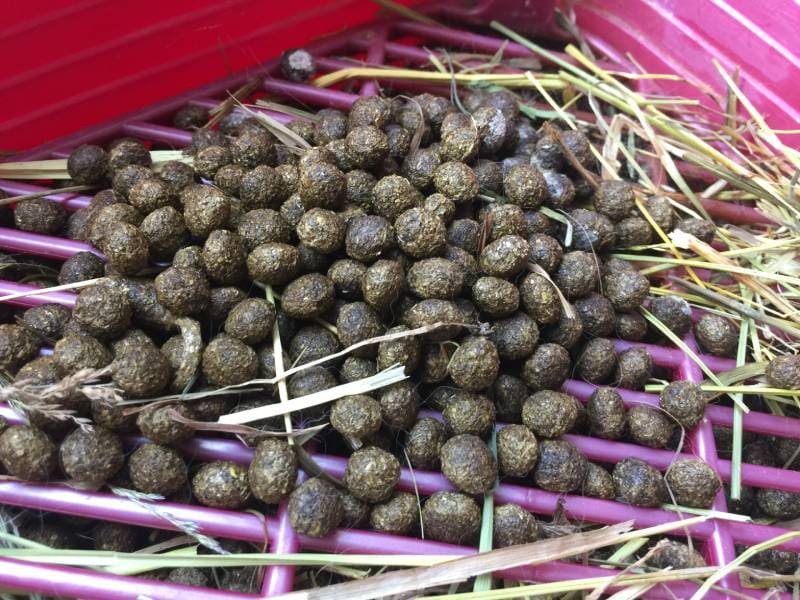
Why Do Dogs Eat Rabbit Poop?
While we don’t know the definitive answer, we have some ideas.
This will sound wild to you, but to a dog, most poop smells good. Not necessarily good enough to eat, but certainly good enough to investigate. It isn’t uncommon for a dog to test something with their mouth that they are checking, and if they don’t find the taste unpleasant, they just found a free pile of treats in the yard! For many dogs, once they find and eat rabbit poop once, they’re addicts for life.
Similar to dogs that eat dog poop, eating rabbit poop can also be a sign of nutritional deficiency in a dog. This may be due to their diet, a parasite, or an illness, but dogs lacking a nutrient may be seeking it elsewhere.
Lastly, eating the poop of other animals is sometimes just a normal part of healthy living for some animals. While this isn’t typically associated with dogs, rabbit poop is a great source of fiber and rarely causes the dog harm, so it makes sense that their body hasn’t evolved to warn them off it.

Possible Consequences of a Dog Eating Rabbit Poop
1. Parasites
The most common concern of dog owners when their dog has eaten rabbit poop is whether they can get parasites like worms from eating it. You’ll be happy to hear that, for the most part, the answer is no. They cannot get worms from rabbit poop, nor most other fecal parasites.
The only fecal parasite that a dog might get from a rabbit is giardia. While some giardia species are species-specific, meaning they only infect one or a short list of animal species, others can infect most, if not any mammal, and rabbits can transmit giardia like this. Giardia transmission to dogs from rabbit poop is not common, but it’s technically not impossible.
There is no need to screen for this when your dog eats rabbit poop unless they develop diarrhea that doesn’t resolve on its own.
If you note that your dog has felt under the weather for more than a couple of days, be sure to have a veterinarian check them out, but otherwise, you should be just fine.
If you need to speak with a vet but can't get to one, head over to PangoVet. It's our online service where you can talk to a vet online and get the advice you need for your pet — all at an affordable price!

2. Fleas
A dog cannot get fleas from eating rabbit poop. Rabbits can transmit fleas, though, and if they are close or have recently been in the area, these could be passed to your dog. If you live anywhere with wildlife-sharing spaces your dog goes, which is just about everybody, it is best that the dog stays on flea preventative to avoid any issues. Keep in mind that fleas can also transmit tapeworms.
3. Mites
Rabbits can transmit both ear mites and Sarcoptes scabiei, also known as scabies, mange, or sarcoptic mange. They do not do this through their poop; this is again an instance where if your dog manages to touch a rabbit while out poop grazing, they could be infected with these parasites. If your dog touches or eats a rabbit, have them see a veterinarian, but if they are only eating their poop, then this isn’t a problem. Unlike fleas, these are only spread through direct contact, not just being in the same area.
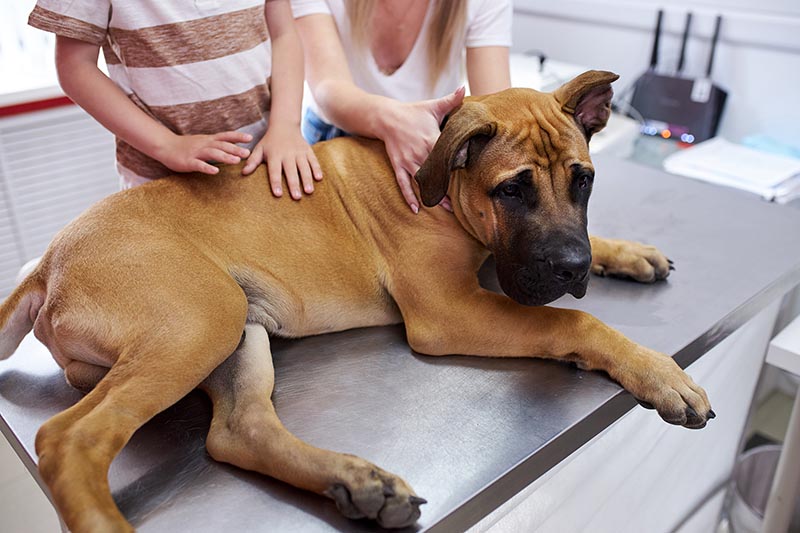
4. GI Upset
This is the only real concern associated with your dog eating poop. If they have a sensitive stomach or eat a lot, it may cause some short-term gastrointestinal discomfort. They may vomit or regurgitate the poop, or they may develop diarrhea. In most cases, this is mild and a single occurrence. If you notice any of these signs, it is best to switch your dog to a bland diet until they are back to normal. If it has been a couple of days and this doesn’t help, or they worsen, it is best to seek veterinary care at that time.

Should I Be Worried That My Dog Ate Rabbit Poop?
No, you shouldn’t worry. In some cases, especially for dogs with significant GI sensitivities, some mild GI upset may be expected, but significant illness from eating rabbit poop is very rare.

Frequently Asked Questions
Is rabbit poop toxic to dogs?
No. Rabbit poop is, in fact, relatively nutritious and a good source of fiber, which might be why your dog loves it.
Can dogs get rabies from eating rabbit poop?
No, they cannot. Rabies is only transmitted from rabbit to dog if the rabbit bites them.
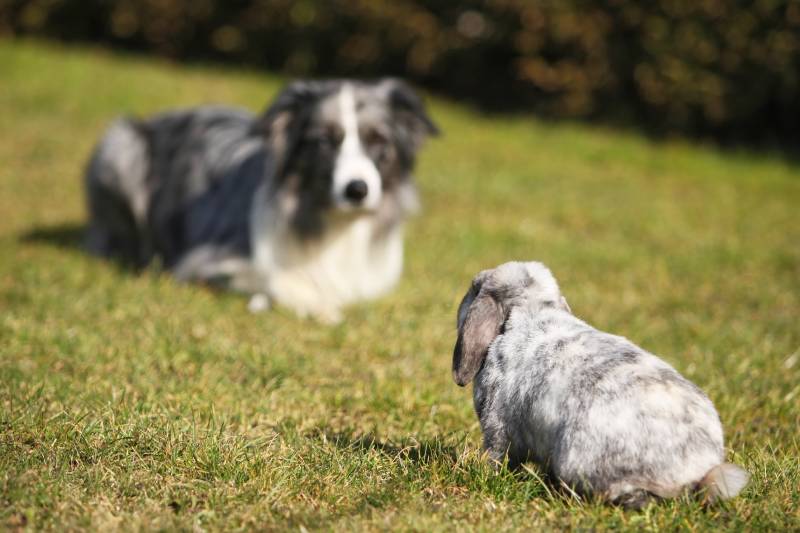
Do dogs get worms from eating rabbit poop?
Nope! This is a common misconception. There are no worms that a dog will get from eating rabbit poop, though they can get tapeworms from the fleas they may be exposed to when around rabbit poop if the rabbit is heavily infested.
What are the signs of giardia in dogs if they develop it after eating rabbit poop?
These would be diarrhea and potentially vomiting primarily, but it wouldn’t start immediately after ingesting the rabbit poop. If your dog has GI upset within a day or so of eating rabbit poop, this will be due to their tummy not liking digesting the new addition to their diet rather than giardia.

Conclusion
Now that you know that rabbit poop is not toxic to dogs, you can breathe a sigh of relief. But if you want to prevent your dog from eating any more rabbit poop, the only way to do this is to keep rabbits out of your yard. Running chicken wire along your fence is usually enough to keep rabbits out. If this isn’t reasonable for you, you can also train a “leave it” command for your dog so they can be redirected from eating the rabbit poop with a verbal command or train them into a scavenge-proof basket muzzle.




